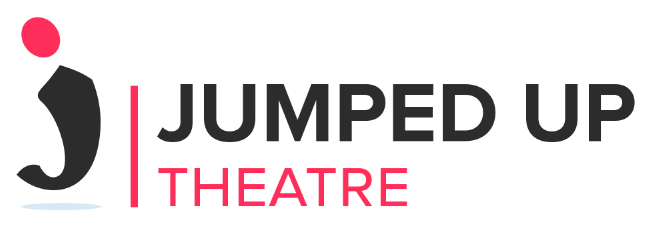Peterborough Culture Forum, Sept + Oct 2020
/This past few months the Peterborough Culture Forum has looked to the future, and did some looking after ourselves. If you would like to join, everyone is welcome, and we meet every other Monday, on Zoom, from 4-5pm - get in touch HERE.
Yesterday, Monday 19th October, we had a taster session with Melanie Coeshott, Career and Life Coach at Blue Diamond, sharing tips on looking after your wellbeing within your career. It was a very popular session with 24 participants and was delivered in partnership with Peterborough Presents - who are looking into running more short courses for smaller groups local artists who want to maintain their well-being. Get in touch with Charley Genever HERE if you are interested.
Back in September, we were joined by Pat Carrington, CEO of Peterborough City College and the new Peterborough City Culture Ltd, who are now running the the city’s libraries, City Museum & Art Gallery, Flag Fen and The Key Theatre. Pat listened to people’s hopes for the city’s cultural assets and took questions, and promised to return to talk further with the forum in the future.. The video of the event is on our Facebook page HERE.
And on Monday 12 October a mixed group of artists, arts organisations, community reps and interested-bystanders put some ideas forward for the restarting of the writing of the city’s culture strategy, the recording of which will be passed onto those writng the strategy. But, for those who couldn’t be there below is my (i.e personal) summary of the ideas that were shared in answer to the question - What has helped you survive over the past six months, and what do you need for the next 6-18 months….? This won’t be the last time we discuss the culture strategy - but it felt like a good start.
Planning for the future: sector priorities for the next 6-18 months:
SUSTAINABILITY:
- ACE funding has been essential and will continue to be. Whatever emerges it must be fit for purpose for leveraging that funding, and other investment.
- Longer term investment planning is needed – short-term funding solutions are not cost effective in achieving change.
- Individual arts practise has been shown to be as important, and even more fleet of foot and innovative, as organisations and buildings, and are therefore vital to the ongoing ecology.
- A realistic, robust business model for the sector is required, where non-economic benefits, such as social impact measures such as well-being, are balanced and valued as well as reasonable financial expectations.
DIGITAL:
- Digital acceleration has happened, how do we harness this development and move forward.
- Sharing of learning on how to use technology as a platform, and how that will inform future practise, is wanted.
COMMUNICATION
- A highly visible digital platform is needed to support events etc. and to demonstrate the arts and culture has been really important, despite the pressure it’s been under.
- Let’s have a dialogue with audiences, about what is already happening, what is wanted, and also how, everyone from artists to communities to individuals, is responding (taking some of the oxygen away from COVID and Brexit and shining some light on the good stuff.)
- Transparency and dialogue will help rebuild trust and confidence, from audiences to encourage them to come to events, to organisations who will put events on.
PARTNERSHIPS:
- Collaborative practise and partnership working have proven to essential for survival, and should be held onto for recovery and growth.
- Ambassadors, people who have a clear purpose and passion, can drive things forward and carry forward the sector’s need for hope and positivity.
- The sector needs a place to network and get support, including skill sharing.
- Support artists to have the confidence take the risk of making something new, rather than waiting for the old normal to return.
ENGAGEMENT:
- Making high-profile, national / international projects relatable to local practise and communities could reignite interest in local arts provision.
- Hold onto the newly found audiences balanced with rebuilding relationships with those who have retreated, or who have hardly been served at all, such as young people and the full diversity of audiences.
- Communities need to see themselves in the story of what is being offered, whether that is a project or a city-wide strategy, and that there is something in it for them.
- The only way we can find out what will draw audiences out is by testing the possibilities, and monitoring and evaluating responses, and then communicating / celebrating the outcomes.
Our next sessions are on 9 and 23 November, and will look at making arts and culture inclusive, and some shared learning on COVID secure live events - the practicalities and audience responses.
And then maybe we should have party, somehow, In December? Let us know what you think.
Best wishes and thank you to all those who contribute to the forum - you make it the positive, welcoming group that it is.
Kate Hall
Creative producer, Jumped Up Theatre

